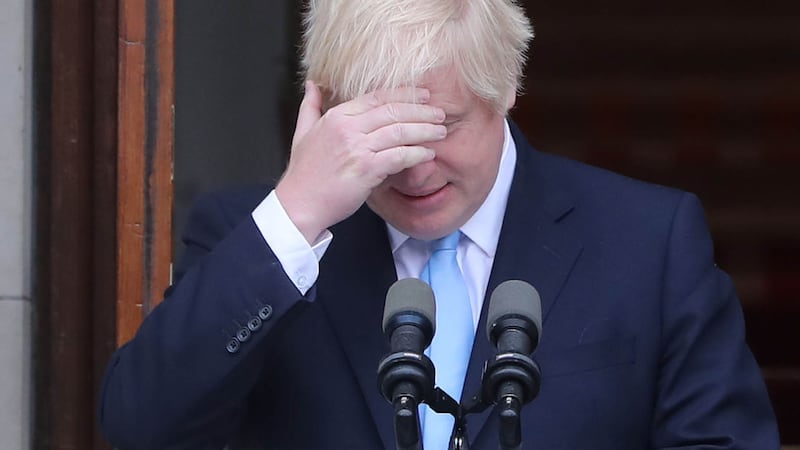Two months before the 1916 Rising a play written by James Connolly, ‘Under Which Flag’, was performed in Liberty Hall, Dublin.
The play reflected the sentiment in the banner which was hung from Liberty Hall immediately before the Rising, ‘We Serve Neither King nor Kaiser But Ireland’.
Sean Connolly, no relation to James, was one of the cast of the ‘Irish Workers’ Dramatic Company’ and the Abbey Theatre. He was the first fatality on the rebel side during the Easter Rising in 1916.
Courtesy of SHIP, a Belfast based organisation dedicated to highlighting the history of Belfast dockers, their families and communities and their contribution to making Belfast a world-renowned industrial and maritime city, I watched a reading of the play on Saturday night in the Duncairn Arts Centre in Belfast.
The play centres around a rural family and friends and the impact of British occupation on their lives: economic and political degradation; to take the ‘King's shilling’ or not; to emigrate or not; to fight for Ireland’s freedom or not.
The actress Sabina Coyne Higgins took time out of a very busy schedule - she is the wife of president Michael D Higgins - to take part in the reading.
Saturday started early for me. I attended a meeting at 9am organised by Coiste na nIarchimi (former republican political prisoners’ group) in Tar Anall to discuss the peace process and Brexit with a group from Turkey representing different faiths in the country.
The issues raised were the IRA, partition, human rights and Brexit and Irish independence and the part played by church leaders in making peace.
Later that morning in Aras Ui Chongaile I spent a few hours with Sinn Féin activists from the Colin area of Belfast.
The discussion centred on the last local government election results and how the party locally could increase its strength, to better represent and improve the quality of people’s lives and to achieving and end to partition and a united Ireland.
The audiences in Liberty Hall in 1916, the Duncairn Arts Centre, Tar Anall and Aras Ui Chongaile had a common point to discuss – Ireland’s future and its independence.
While watching the reading in the Duncairn Arts Centre my friend passed me his phone with the latest instalment in the crisis-ridden decline of Boris Johnson and his shambolic government – Amber Rudd’s resignation from his government.
We were told that partition resolved Ireland’s claim for independence. Yet 100 years on from it and 135 years on from the scenes depicted in James Connolly’s play, partition is slowly choking Johnson’s government and before him Theresa May’s.
The Brexit debacle comes down to a clash over partition in a new form known as the ‘backstop’ between the Irish government, the EU and pro Remain parties in Ireland and the British government and DUP.
The ‘backstop’ provides for Ireland to be treated differently than Britain in terms of trade with the EU.
And the DUP and Tory ‘little Englanders’ are railing against this on the grounds that it undermines Britain’s claim over the north.
Brexit has not only riven Westminster’s political system it has opened up the possibility of a break-up of the UK, with the Scottish Nationalist Party (SNP) calling for a second referendum on independence and Sinn Féin calling for a unity/border referendum.
Also Remain candidates in the north took two of the three seats in the recent EU election, and, since 2017 unionism is not longer a majority in the Stormont chamber.
The debate about Irish and Scottish independence is commonplace like never before. The SNP use every opportunity, including its government’s influence to promote independence.
In terms of developing the independence argument in Ireland and Scotland Sinn Féin and civic nationalists and the SNP will see the forthcoming Westminster election as a golden opportunity not to be missed.
There will be two strands to Sinn Féin’s election strategy: to strengthen the independence vote and to elect as many Remain MPs as possible.
The latter objective would require formal or informal agreements/understandings with Remain parties.
The prize is huge. Properly handled the DUP could lose its three Westminster seats in Belfast.
Ireland and Britain are in a state of flux, much like they were when James Connolly’s play was performed in 1916 but the outcome could be totally different: independence for Ireland and Scotland.








